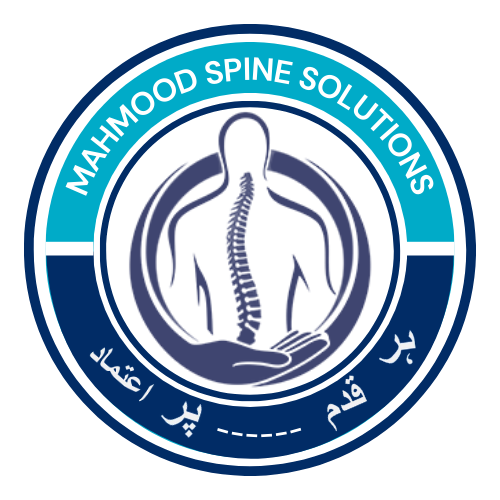Spinal health is critical to your overall well-being. Whether you’re dealing with chronic back pain, scoliosis, or a more severe spinal condition, finding the best spine surgeon in Pakistan can make all the difference in your recovery journey. This article serves as a comprehensive guide to understanding spinal health, common spinal issues, treatment options, and how to choose the right spine surgeon.
Why Spinal Health Matters
The spine is a vital part of the human body, providing structural support, enabling movement, and protecting the spinal cord. Poor spinal health can lead to debilitating conditions, affecting daily activities and quality of life. Common symptoms of spinal issues include:
- Persistent back or neck pain
- Numbness or tingling in the limbs
- Difficulty in mobility
- Muscle weakness
- Postural issues
Ignoring these symptoms can worsen conditions over time, making early diagnosis and expert intervention essential.
Common Spine Disorders Treated by Spine Surgeons
Spine surgeons specialize in diagnosing and treating a wide range of spinal conditions. Here are some common issues that may require surgical intervention:
1. Herniated Disc
A herniated disc occurs when the cushioning discs between vertebrae slip out of place, pressing on nearby nerves. Symptoms include sharp pain, numbness, and limited mobility.
2. Scoliosis
Scoliosis is a sideways curvature of the spine that can lead to uneven posture and discomfort. Severe cases may require surgical correction.
3. Spinal Stenosis
This condition involves the narrowing of the spinal canal, leading to nerve compression. It can cause pain, weakness, or numbness, particularly in the legs.
4. Degenerative Disc Disease
Aging and wear-and-tear can cause the spinal discs to degenerate, leading to chronic pain and reduced flexibility.
5. Spinal Fractures
Trauma, osteoporosis, or accidents can cause spinal fractures that may necessitate surgical stabilization.
Treatment Options: When to Consult a Spine Surgeon
Treatment for spinal conditions varies based on the severity of the issue. Non-surgical options include:
- Physical Therapy: Strengthening the muscles supporting the spine
- Medication: Pain relievers and anti-inflammatory drugs
- Lifestyle Modifications: Improving posture, losing weight, and staying active
- Injections: Corticosteroid injections to reduce inflammation
When these methods fail to alleviate symptoms, surgical intervention might be required. Spine surgeons perform a variety of procedures, including:
- Microdiscectomy: Removing part of a herniated disc to relieve nerve pressure
- Spinal Fusion: Joining two or more vertebrae to stabilize the spine
- Laminectomy: Removing parts of the vertebrae to enlarge the spinal canal
- Scoliosis Surgery: Correcting spinal curvature
How to Choose the Best Spine Surgeon in Pakistan
Selecting the right spine surgeon is crucial for a successful outcome. Here are the factors to consider:
1. Qualifications and Experience
Look for surgeons with specialized training in spinal surgery and extensive experience handling complex cases. Certifications from reputable medical boards are a strong indicator of expertise.
2. Specialization
Some surgeons focus on specific conditions like scoliosis, while others may specialize in minimally invasive techniques. Choose a surgeon with expertise relevant to your condition.
3. Reputation and Reviews
Seek recommendations from other patients or check online reviews to gauge a surgeon’s reputation. Consistent positive feedback is a good sign.
4. Hospital Affiliation
Ensure the surgeon is affiliated with a reputable hospital equipped with advanced technology for spinal procedures.
5. Communication and Empathy
A good surgeon listens to your concerns, explains treatment options clearly, and prioritizes your comfort throughout the process.
Spotlight: Leading Spine Surgeon in Pakistan
Pakistan is home to some highly skilled spine surgeons offering world-class care. Below are a few renowned names in spinal surgery:
Dr. Muhammad Mahmood Ahmad
With over 14 years of experience, Dr. Mahmood Ahmad is a leading spine and orthopedic surgeon practicing at Razia Saeed Hospital, Multan. He specializes in treating complex conditions such as herniated discs, scoliosis, and spinal tumors. Patients appreciate his patient-centered approach and successful surgical outcomes.
Preparing for Spine Surgery: What to Expect
Undergoing spine surgery is a significant decision that requires careful preparation. Here’s a step-by-step guide:
1. Initial Consultation
During the first appointment, your surgeon will review your medical history, conduct a physical examination, and recommend diagnostic tests such as X-rays, MRI, or CT scans.
2. Pre-Surgical Preparations
Once surgery is confirmed, you’ll receive guidelines on pre-surgery care, including:
- Adjusting medications
- Fasting before the procedure
- Arranging post-surgery assistance
3. Post-Surgical Care
Recovery times vary based on the procedure and individual health. Follow-up appointments, physical therapy, and adherence to aftercare instructions are crucial for optimal recovery.
Why Pakistan is Becoming a Hub for Spine Surgery
Several factors make Pakistan a preferred destination for spine surgery:
- Highly Qualified Surgeons: Pakistani spine surgeons are trained in advanced techniques and have international exposure.
- Affordable Costs: Spine surgery in Pakistan is significantly more cost-effective compared to Western countries.
- State-of-the-Art Facilities: Leading hospitals in cities like Karachi, Lahore, and Islamabad are equipped with cutting-edge technology.
- Personalized Care: Patients often receive more personalized attention compared to larger, busier healthcare systems abroad.
Maintaining Spine Health Post-Surgery
Recovery doesn’t end with the surgery. Long-term care is essential to prevent recurrence and maintain spinal health. Here are some tips:
- Stay Active: Engage in low-impact exercises like walking or swimming.
- Adopt Good Posture: Avoid slouching and ensure ergonomic seating arrangements.
- Eat a Balanced Diet: A nutrient-rich diet supports bone health.
- Avoid Smoking: Smoking can impede healing and increase the risk of complications.
- Regular Check-Ups: Follow up with your surgeon to monitor progress.
Final Words
Finding the best spine surgeon in Pakistan is the first step toward reclaiming your quality of life. With advancements in medical technology and a growing pool of expert surgeons, Pakistan offers excellent options for those seeking spinal care. Whether you’re considering surgery or exploring non-surgical treatments, it’s crucial to consult a specialist who understands your unique needs.
Take Action Today
If you’re experiencing spinal issues, don’t wait to seek professional help. Book a consultation with Dr. Muhammad Mahmood Ahmad at Razia Saeed Hospital, Multan, and start your journey toward better spinal health. Contact 0300 0777790 or email [email protected] for more information.
Your health is your greatest asset. Take the first step to protect it today!




